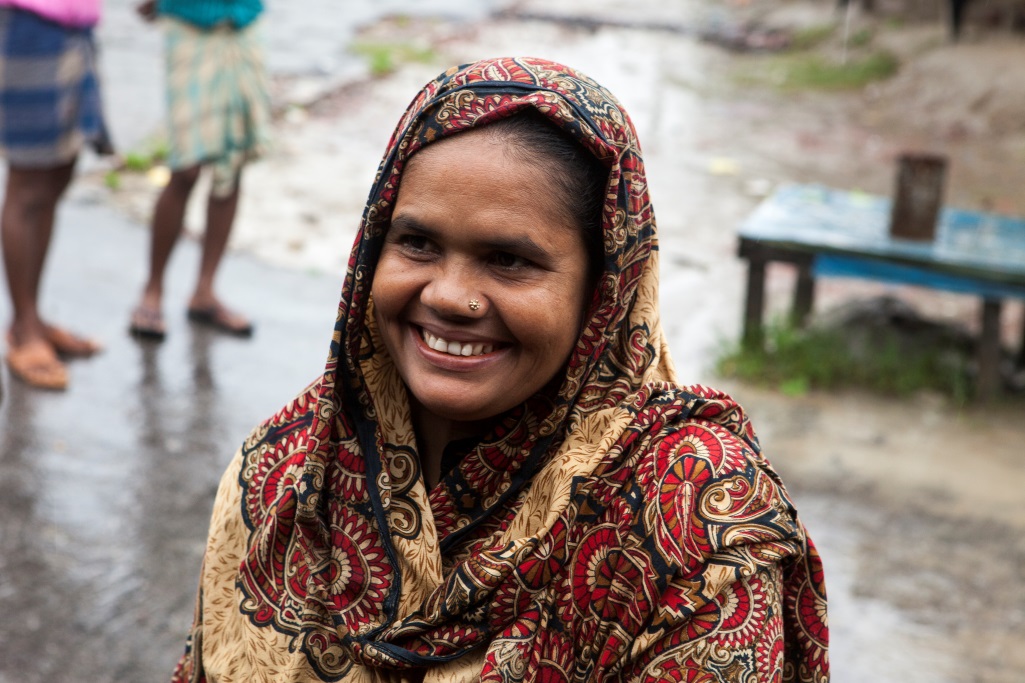This case study, produced on International Women's Day 2017, focuses on Laily Begum from Bangladesh, Women’s Group Member and former elected women member of Union Parishadh.
When tropical cyclone Mahasen hit Bangladesh in 2013 it destroyed the houses and livelihoods of more than 1 million people. Women were largely affected as their social marginalisation, lack of mobility, low asset base and exclusion from decision-making processes compounded their vulnerability.
In Patuakhali District, ActionAid Bangladesh and partners working through a Start Network-coordinated programme built the capacity of women to lead the next humanitarian response in their communities. An additional objective was to increase their confidence to work in different situations and create an impact on long-term development.
Background to the project
Start Network coordinates 13 projects under the UK aid funded Disasters and Emergencies Preparedness Programme (DEPP), one of them being the Linking Preparedness, Response and Resilience Programme, known as LPRR.
In Bangladesh one of the key activities is the Women-Led Emergency Response (WLER) programme. This aimed to rebuild the houses of families affected by the cyclone and build the capacity of women to take leadership roles in future emergency responses and resilience building. Together with its partners, the Association of Voluntary Action for Society (AVAS), ActionAid Bangladesh organised initial orientation training with women in eight villages.
The women then took a leading role in a needs assessment, selecting the most affected and vulnerable households, preparing a budget for rebuilding the damaged houses, procuring construction materials and supervising the reconstruction work. This was ground-breaking as many women previously never left their homes without being accompanied by a male family member.
Women's leaders are conducting need assessment with community people
What has the project acheived?
A key outcome has been the collective mobilisation of women, and empowerment of women leaders to guide community members in emergency response and recovery efforts. They have been able to demonstrate their long-standing knowledge of the local area and their capabilities, and thereby challenged and transformed existing gender stereotypes.
According to research for the LPRR project, coordinated by Start Network, the community feels that 80% of the women are now significantly more aware of risks and able to prepare their family and households for future crisis. Community members also explained that they feel gender injustice has been tackled and women have gained an increased level of respect, skills, empowerment and the ability to contribute to decision making in the community and family.
Men now understand why it is important for women to be involved in decision making and they explained that their respect towards women has increased.
Women Leaders procuring construction materials
Laily's story
‘I was the president of Union Disaster Management Committee. When the signal [on cyclone Mahasen] was given, I was very attentive about it. We arranged instant meeting at the night and collectively made plan on how to let people know, took women, children, elderly people and pregnant women to the shelter. We gave extra attention to them, as they are more vulnerable than others.’
‘Women understand the need of a woman; men do not give that much importance to women’s needs. Women can do multitasking, cooking, child care, home management, working outside; they can balance everything. But the men are only concerned with the employment and outside works. If given the proper opportunities, women can do anything; physical constraints do not matter in here. If more [women] leaders could be made and trained, we can be a strong force. People will then listen to us. Also then women can access government authorities in any need. During leadership, at first, people will taunt you, second day they will laugh at you and eventually they will understand the importance of our work.’
‘Breaking social norms is not easy. Someone who has never been outside the house will feel uncomfortable while going outside for the first time. Social custom plays an important role. It should be changed and it is changing gradually. People should understand that women going outside for work does not diminish our dignity if the result of the work is effective and builds awareness’.
Read more about the Disasters and Emergencies Preparedness Programme.
Read more about the Linking Preparedness, Response and Resilience project.
International Women's Day 2017.
PHOTO CREDIT: ActionAid

